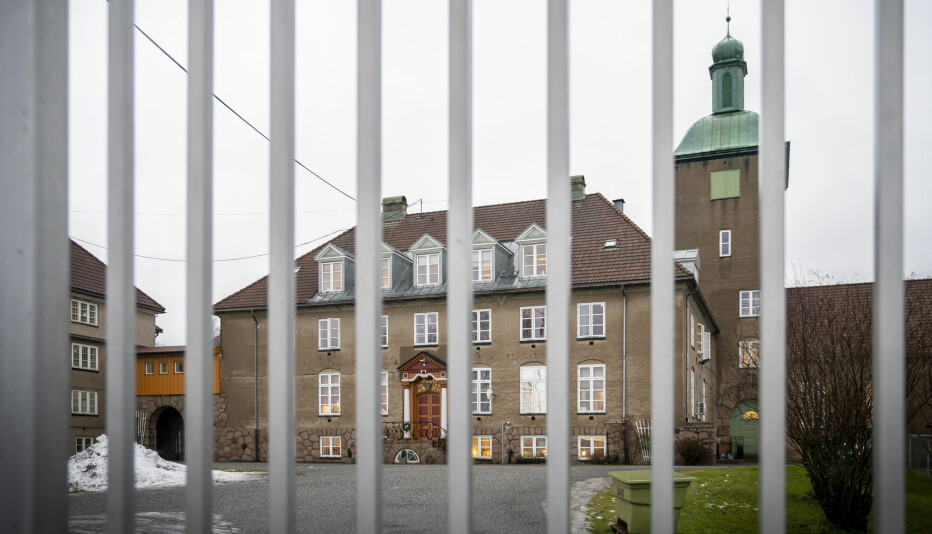This article was produced and financed by Oslo Metropolitan University

Why do Norwegian youths believe the West is at war with Islam?
Nearly sixty percent of Oslo’s youth population believe the West is at war with Islam. Is it just a sign of the times?
In a recent study, the youth researchers dr. Viggo Vestel and Anders Bakken from Norwegian Social Research at HiOA have studied attitudes towards extremism among young persons in Oslo.
They have also looked into what characterises those who support an extremist worldview.
One of the main findings is that nearly sixty percent of the youth population in the study agree totally or partly that the West is at war with Islam.
Reflects recent history
This is stated in a new report from the project Young People and Political Extremism in Contemporary Norway. Researchers Viggo Vestel and Anders Bakken have asked 8 500 youths aged 16–19 years about their views on extremist Islam and extremist right-wing Islam-critical positions.
The notion that such a war is going on probably reflects the most recent developments in world history. Young people know about the war in Afghanistan and Iraq, the USA’s treatment of the prisoners at Guantánamo, the chaos in Syria and the conflicts in the Middle East.
Some have family or friends being killed in these conflicts.
For the extreme right wing – and also for mainstream citizens, including moderate Muslims – Muslim extremist terror and fundamentalism are understandably scary. This leads to general suspicion and fear of all Muslims.
Social media are a main source of information for young people, and conspiracy theories fuel such polarised views.
Mainly against violent extremist views
But the researchers behind the survey, are optimistic:
"Our main finding is positive. Very few young people advocate the use of violence to achieve political change in today’s Norway, even if they support attitudes often found in extremist Islam or in right-wing extremist groups. This is important, since the most serious cases of extremism most likely occur when the whole package of extreme standpoints are expressed,” state Vestel and Bakken.
Nevertheless, the study shows that a considerable number of respondents do go a long way toward supporting some of the statements associated with an extremist worldview:
- Three out of ten believe that the West is threatening Islamic culture and values, and almost as many believe that Islam is threatening Western culture and values.
- About six percent express their support for the young people who decide to engage in violence in Syria.
- Three percent advocate the use of violence to achieve political change in Norway or Europe today.
According to Vestel the findings should not be interpreted as a direct confirmation that many young people support extremism or identify themselves as either far-right critics of Islam or radical Islamists. But the findings do say something about the factors underlying attitudes and views that extremist groups may play on to attract young people.
Who is at risk?
Those with the most extreme attitudes often lack friends and have been subjected to bullying and violence.
Some have been involved in criminal acts, perform poorly at school and have a more negative view of their future. Young males of immigrant background – particularly those who have experienced religious and ethnic discrimination – are overrepresented. Youth with more unfavourable socio-economic backgrounds and those living in poor neighbourhoods are more likely to support some of the extreme views.
However, this may be explained by other factors that co-vary with socio-economic conditions, like religion and immigrant background.
“We see no evidence of the development of marginalised parallel communities in our study,” says Bakken.
A battle in two arenas
The battle against extremism and increasing polarisation should, according to Vestel, be fought in two arenas.
The first is to take systematic steps to remove these young people from a problematic life situation, help them find an identity and acceptance in alternative social groups, improve their self-image, and to combat racism and discrimination.
The second arena is ideological. The fight against increasing polarisation means daring to discuss the contemporary world situation in broader terms, including Norway’s military involvement abroad and its business interests in war-torn areas or in undemocratic regimes.
There is also a need to discuss the questionable sides of the fundamentalist religions, which represent views remote from common democratic values. “The best way to address this is through open and inclusive dialogue – be it in the classroom, parliament or in the media,” Vestel concludes.
































